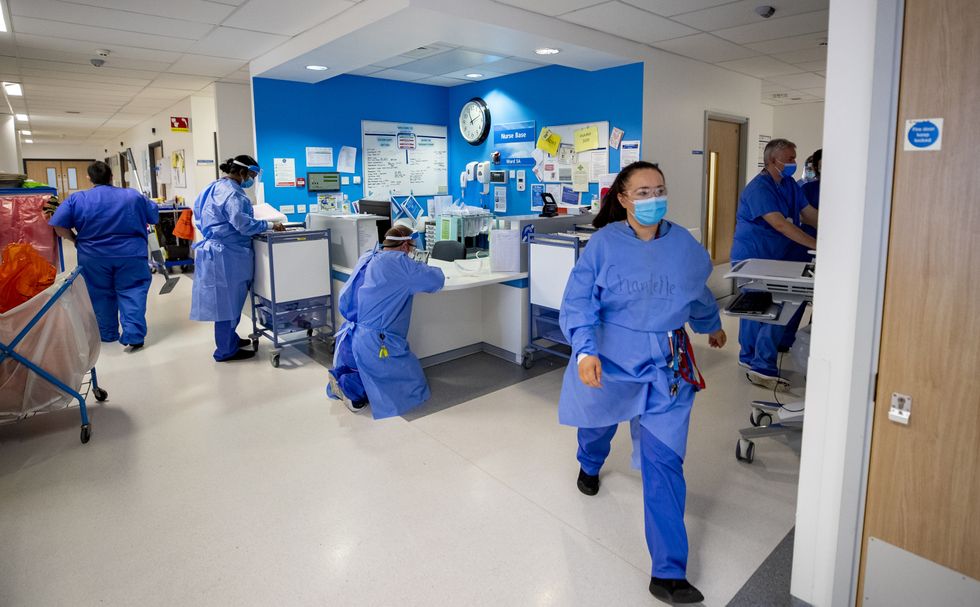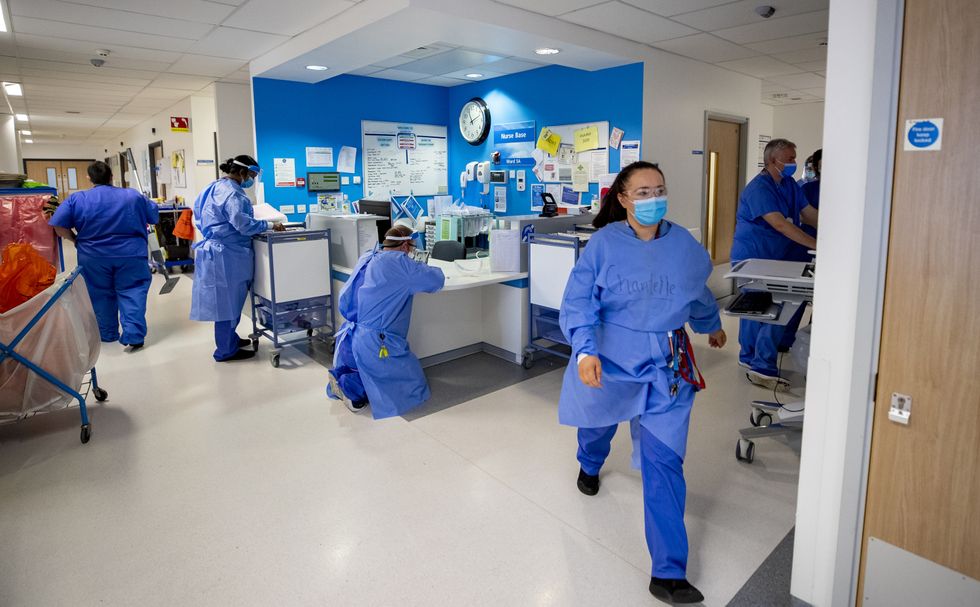Midwife report suggests 'natural birth' term should be dropped for being 'judgemental'

EMBARGOED TO 0005 WEDNESDAY JUNE 1 File photo dated 20/10/20 of staff on a hospital ward. NHS complaints procedures have been likened in a new review to "asking hospitals to grade their own homework". Issue date: Wednesday June 1, 2022. | Peter Byrne
A study from the Royal College of Midwives found some women feel judged by the language
Don't Miss
Most Read
Terms such as “normal” or “natural” birth should be dropped in favour of language that is factual, a midwife-led report has concluded.
The study, from the Royal College of Midwives (RCM), found some women feel judged by language that suggests their labours have failed or that somehow their birth experience has been abnormal.
Instead they want descriptions that are “non-judgmental, non-hierarchical” and which are not “value-laden”, it said.
The study comes after a damning report into failings at Shrewsbury and Telford Hospital NHS Trust, where mothers and babies died, suggested there had been too much focus on promoting “normal” or vaginal births and keeping Caesarean rates low.
As recently as April, NHS trusts were still posting job adverts for midwives committed to “normal birth” and asking for “normality-focused midwives”.
One advert said a trust was “seeking a highly motivated, experienced dynamic midwife… committed to the philosophy of normal birth”, while another said it was seeking a midwife interested in the “promotion of normality”.
NHS workers
Peter Byrne
The new RCM study included responses from 8,000 people in the UK, including women, their partners, doctors and midwives.
About 1,500 women who had given birth in the past five years gave their views.
During the study, “normal labour and birth” and “natural labour and birth” had the highest proportion of responses where people thought the terms should not be used, although some preferred the terms or did not mind them.
The study also found that people thought “the use of language in maternity care, including words that implied ‘failure’ or ‘incompetence’ or ‘lack of maternal effort’, contributed to feelings of failure and even trauma around their birth experience”.
The study recommended several terms that should now be used by health professionals and researchers.
These include “spontaneous vaginal birth” for a birth without intervention, “induced and/or augmented labour” such as when labour is induced, “birth with forceps/ventouse” and “Caesarean birth”.
Gill Walton, chief executive of the RCM, said of the project: “The relationship between a midwife and the women in her care is an incredibly intimate one.
“The role of the midwife is to advise and support women, to listen to them and to advocate on their behalf.
“To do that successfully, we have to share a language. That is why Re:Birth is so important. It puts women’s choices at its heart, so that they are in the driving seat when it comes to how their labour and birth are described.”
Historically, the idea of a “normal birth” has been promoted in the UK, with the RCM, the National Childbirth Trust (NCT) and the Royal College of Obstetricians and Gynaecologists (RCOG) signing a “normal birth consensus statement” in 2007.
They said: “With appropriate care and support the majority of healthy women can give birth with a minimum of medical procedures…
“Procedures used during labour which are known to increase the likelihood of medical interventions should be avoided where possible.”
A later 2015 inquiry into failings at Morecambe Bay NHS trust – where 11 babies and one mother suffered avoidable deaths – found a group of midwives’ overzealous pursuit of natural childbirth had “led at times to inappropriate and unsafe care”.
Two years later, in 2017, the RCM dropped its “normal birth” campaign and removed similar advice for midwives from its website.
Meanwhile, the RCOG has recently apologised on Twitter for signing up to the “normal birth consensus statement” in 2007.
It said this “may have mistakenly given the impression that targets around childbirth could take priority over safety. This is something we acknowledge and sincerely regret”.
The term “normal birth” is still used by other organisations including the International Confederation of Midwives and the World Health Organisation.











